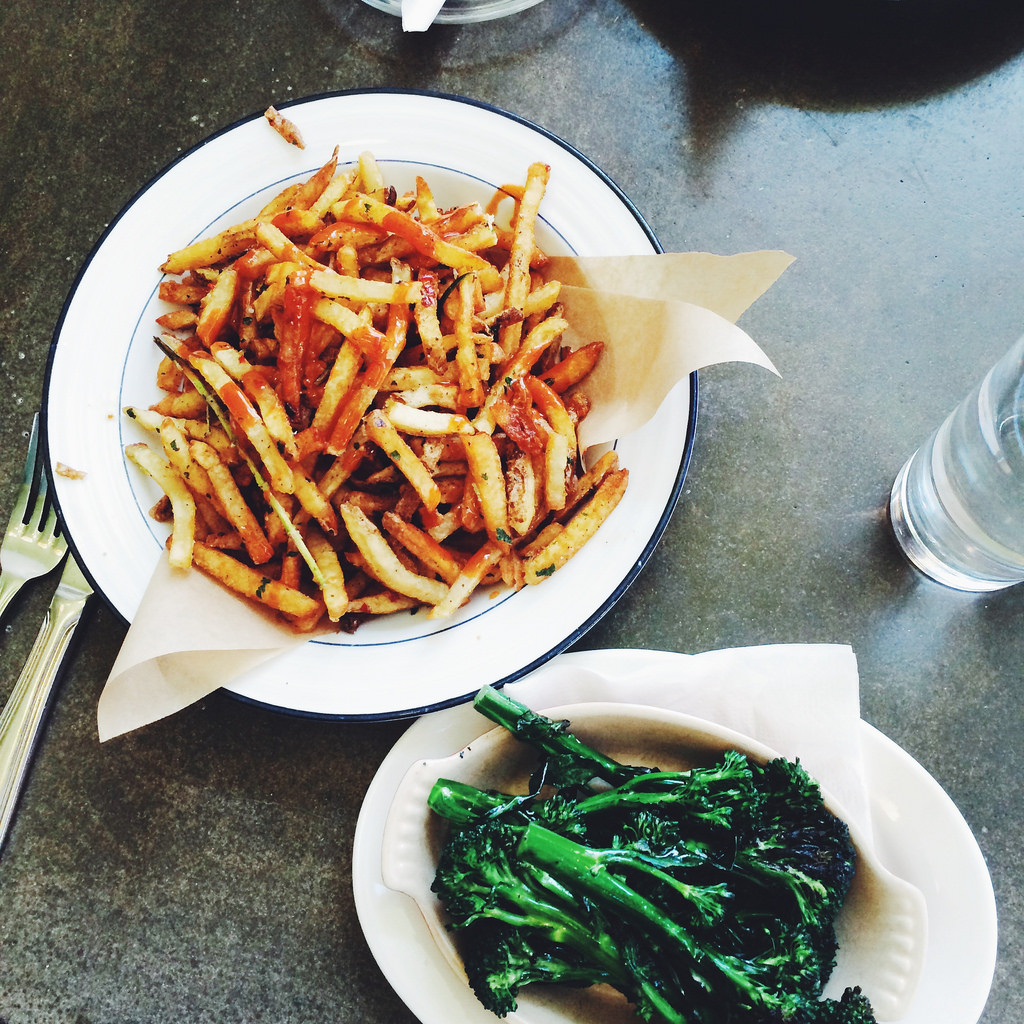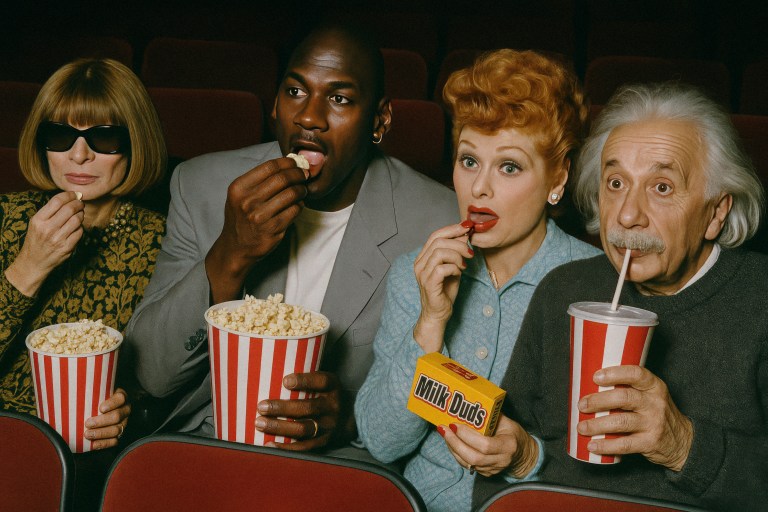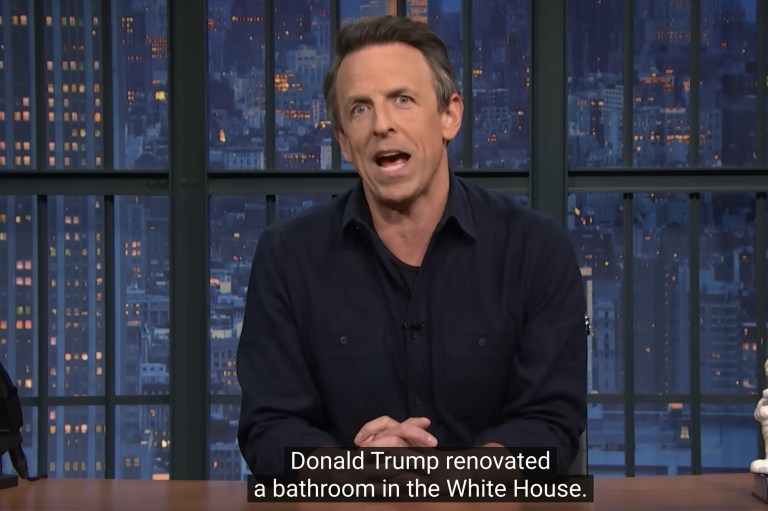
7 Things That Happen When You First Become A Vegetarian
Watch the list of entrees diminish from 10 to 2, or 1, or none. Stare at the appetizers and wonder if you can survive indefinitely on meals made of garlic bread, salad, and mozzarella sticks. At least you can still eat the desserts?
1. You have trouble finding things to eat.
This one is pretty obvious. Pick a restaurant menu and start systematically crossing off every dish with a meat (or fish) ingredient. Watch the list of entrees diminish from 10 to 2, or 1, or none. Stare at the appetizers and wonder if you can survive indefinitely on meals made of garlic bread, salad, and mozzarella sticks. At least you can still eat the desserts?
When I first stopped eating meat, I had ZERO idea what to eat instead. Consequently, I wound up relying on a diet loaded with carbs and fatty dairy products, and it wasn’t very good for me. I stuck with it because I was a teenager growing up in a meat-and-potatoes family in suburban America, and I didn’t know what else was out there! It took years of exploration before I discovered how to eat things made out of beans, nuts, whole grains, fruits, and vegetables. Nobody handed me a vegetarian guidebook when I started, and man, would it have helped.
2. You learn to explain yourself. A lot.
Pre-vegetarian, when I was 10, my parents sent me to a summer camp run by a Jewish Community Center. One of the counselors was on a vegan, kosher diet, and while I slurped down matzo ball soup I bugged him about his sad little plate of black-eyed peas. Why wouldn’t he eat what everybody else was eating?
Fast-forward two years, and there I was sitting red-faced and ashamed at my family’s Thanksgiving dinner, having hurt my grandma’s feelings by refusing to eat her turkey. By that point, I was used to watching for sly classmates eager to slip a piece of bacon into one of my sandwiches as a joke, but I wasn’t yet used to insulting the cook at the dinner table. Even today, I still get anxious if someone I don’t know very well asks me to a meal — will they be affronted by my self-imposed dietary restrictions? I can’t claim gluten intolerance or a nut allergy, and some people will always think I’m just being rude.
I have learned to have a list of why-I’m-a-vegetarian-reasons always at the ready. I explain that even if I wanted to stop doing it right here and now, I probably would get a bit sick if I ate a steak for dinner. I explain that it’s not all bleeding-heart PETAism, that there are a lot of ecological and environmental and humanitarian reasons that I don’t eat meat.
Funnily enough, years of being challenged on my eating habits have led me to do a lot of research about how my diet impacts the world around me. I wasn’t very principled when I set out — I was just a kid doing something adventurous. And I’m not the type to advocate that anybody else adopt my diet. But having spent more than half of the life on the defensive about the contents of my dinner plate, I really do know — and care — about the ethics of food in ways I never did before. So thanks, meat-pushers — I owe you one.
3. You learn to read ingredient lists.
In my early years, studying nutrition labels to identify sneaky meat ingredients led to a lot of “What the hell IS that?!?”s and “Ewwwww”s. The truth is, we eat a lot of unsavory stuff. I’ll never forget the day I stood in my family kitchen holding an unopened bag of Skittles and listened to the woman at Mars customer service explain that yes, it was beef gelatin inside. Throwing that bag away after I hung up the phone was one of my saddest kid moments ever.
Marshmallows were another casualty. I still remember my last s’more, and damn, was it good. No Yoplait yogurt (gelatin), no butter substitutes (fish oil), no granola bars (whey), no cheese (rennet). There are gelatin and lard in so very many things. It’s hard to tell with cheese — traditionally, but not consistently, it’s made with enzymes removed from the stomachs of slaughtered baby animals. They do not teach this in school, y’all.
4. You start to understand how the food industry works, and how it doesn’t.
The saddest realization that came out of my nutrition label education was that most Americans are overweight, according to objective health metrics, and most overweight Americans have no idea what they’re actually eating. How could they? Reading ingredient lists in English is only slightly easier than reading them in Greek. You need a secret menu decoder — that “coloring” is made of crushed-up beetles (just not appetizing, vegetarian or no). This “flavor” is a chemical made in a lab that has nothing to do with the substance you think you’re eating. Chicory fiber is pretty useless. Drinking diet soda can trick your appetite into making you eat more. It’s a treacherous world out there for people trying to be healthy. Big food doesn’t really care about the (big) people eating it, even though their health and their lives are at very much at stake.
5. You start treating your body differently.
My BMI falls right in the middle of the “healthy” range, which means I am not what our culture defines as “skinny”. I’m not a health nut. I love dark chocolate and I indulge pretty regularly. I drink alcohol, I go out to eat in restaurants, I don’t always buy organic. But I have learned to be aware. Of the link between what I eat and how I feel, what I look like, what the doctor says. I’m at risk for some pretty serious health problems and so even though I’m young, I’ve learned that this stuff matters. Being a vegetarian did that for me.
6. You stop missing meat.
I think fried chicken smells fantastic. But if you put it on the table in front of me, I’m equally likely to eat it as I am to start devouring the tablecloth. It’s just not something I think about anymore. Changing your diet does change your cravings. It’s true. This is the one hope I think any dieter has ever successfully hung his hat on: stick with it long enough, and you will want to eat the good stuff. It does happen. But it also does take a long time, and it is hard. It is really hard.
7. You love it.
My body needs to hold up for many more decades, if I have my way. The world needs to hold up for many more centuries. Being a vegetarian is about preservation and resource conservation, and it can be a healthy way to live. It’s not the only healthy way, and I’m not saying everyone should do it. But I love it. And I wish that the education I’ve been forced to give myself about food was a universal one. I wish I had learned it in school. I wish it was required. Because no matter how many ways you spin it, America has a food problem. The world has a food problem. Yet while we’re all busy talking fat politics, nobody is talking food politics — even though they are inseparable. If we fix food, we might just have better luck at fixing fat. And even if that doesn’t happen, we’ll still help to ensure unlimited supply of fried chicken and marshmallows for future generations. I might be a vegetarian, but I think that’s a pretty worthwhile goal. ![]()











